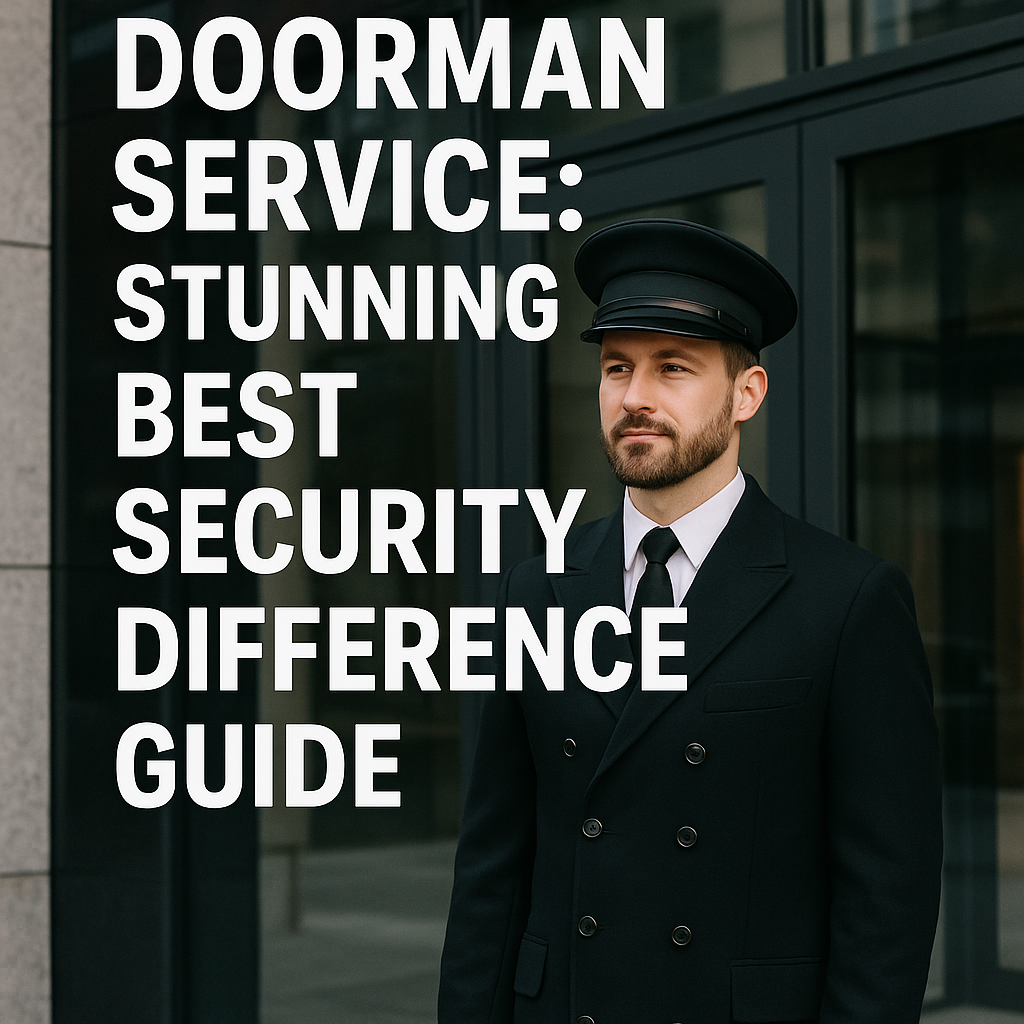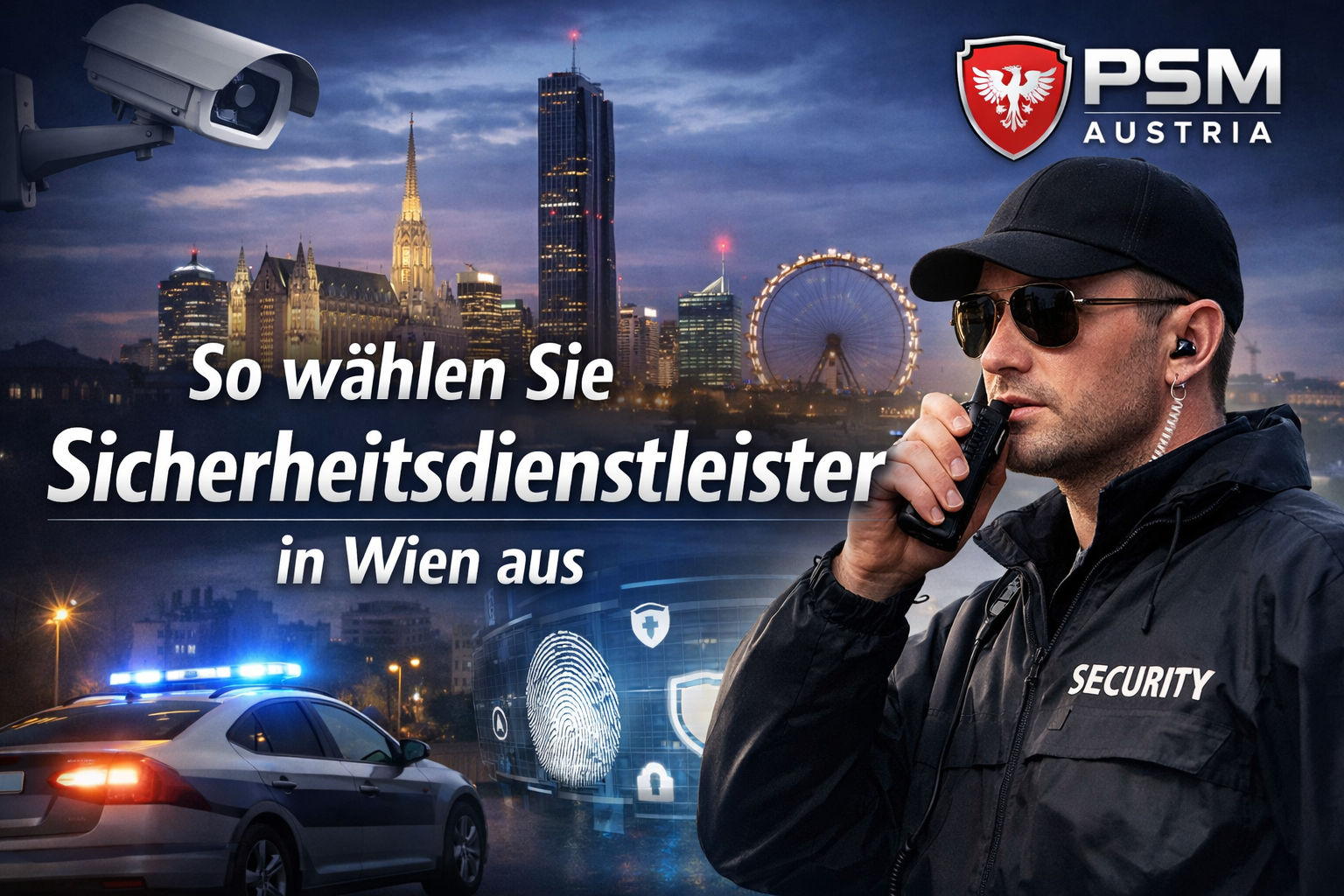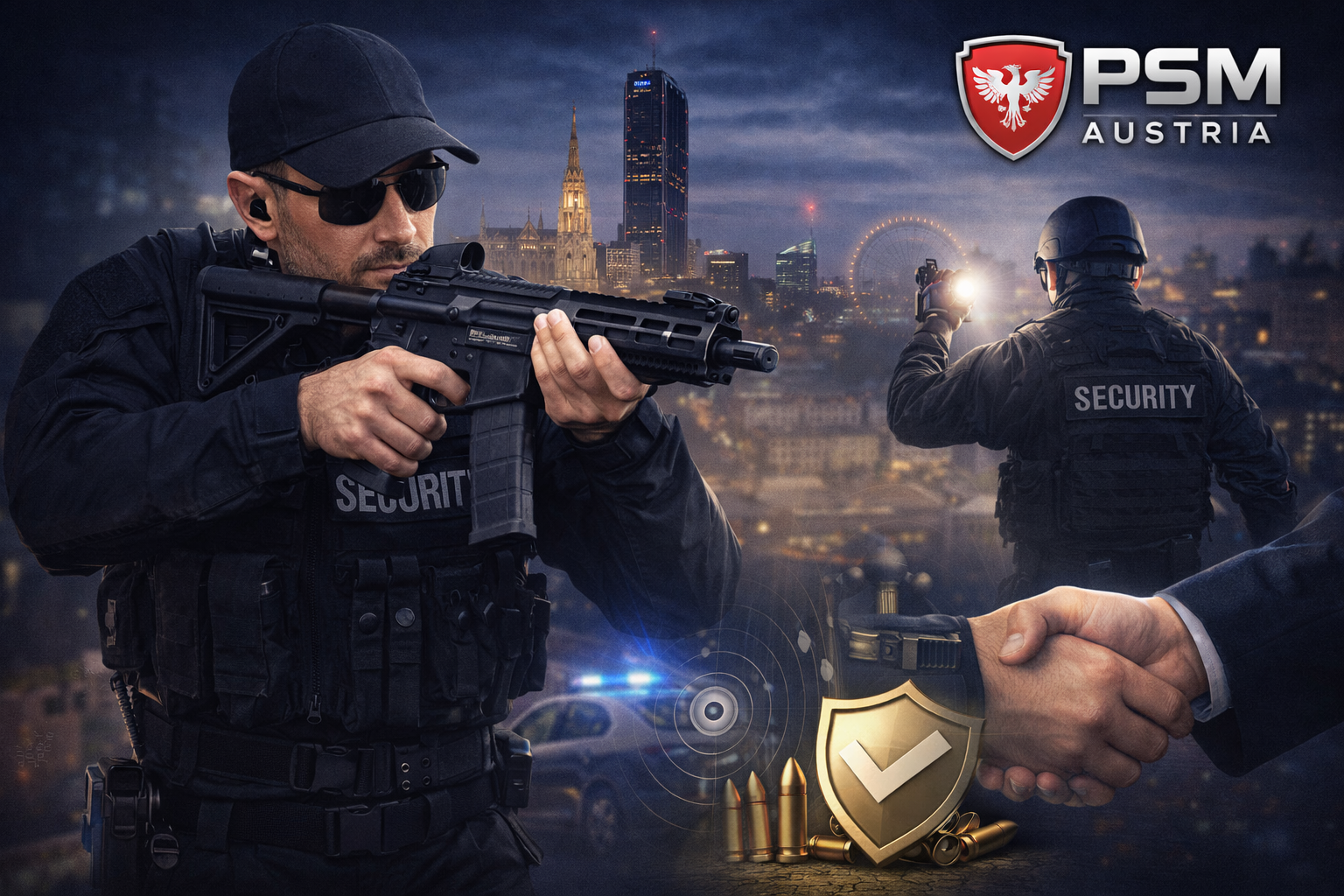Security services keep risks low and operations stable – in office complexes, on construction sites and at events. Anyone searching for Security Wien wants to know: What exactly does a security service do, how does an assignment work in practice, and which rules apply in Austria? Here is a compact, hands-on overview.
As a guide, we use typical areas of deployment such as property protection (Objektschutz), construction site security (Baustellenbewachung) and event security (Veranstaltungssicherheit). We also outline clear steps from the first consultation through to reporting – including mini examples from day-to-day operations.
What falls within the scope of a security service?
The tasks of a security service can be divided into preventive, operational and documenting activities. Depending on the risk profile and industry, these are combined individually.
- Prevention: access control, visitor and supplier clearing, ID and equipment checks, patrol rounds, monitoring of alarm systems and cameras.
- Operational: alarm response, de-escalation, first aid, evacuation support, coordination with police/fire brigade/ambulance.
- Documentation: shift and incident reports, securing evidence, defect lists, handover protocols.
- Property protection (Objektschutz): 24/7 monitoring, locking services, fire safety rounds, basic technical checks.
- Construction site security (Baustellenbewachung): protection of materials, night and weekend guarding, access control for subcontractors, GPS checkpoints.
- Event security (Veranstaltungssicherheit): admission and bag checks, backstage and stage areas, crowd management, support with the evacuation plan.

What is needed depends on location, opening hours, number of people and existing technology. A small co-working space might mainly need a smart access setup during the day – a logistics hub, on the other hand, will require night guards and regular external patrols.
How does an assignment work? (from first consultation to reporting)
A professional process reduces friction and makes quality measurable. The following steps show the core process – from first contact through to review.
- Initial consultation & site inspection: clarify objectives, identify risk areas, define key zones.
- Risk analysis & action plan: prioritise threats, create post plan and checklists.
- Offer & service agreement: define scope of services, hours, escalation paths and reporting.
- Onboarding & briefing: post orders, patrol maps, emergency contacts, radio/app setup, trial shift.
- Service delivery: carry out patrols, document checks, handle alarms, de-escalate incidents.
- Reporting & review: daily and monthly reports, KPI check (e.g. completion rate of locking rounds, alarm response time), derive optimisation measures.
Mini scenario: noise complaints are increasing at night in an inner courtyard. After two weeks of documented times and profiles, the team adjusts its patrol routes – incidents decrease measurably.
Legal framework in Austria (short & practical)
For events in Vienna, MA 36 (Department for Trade, Fire Safety and Events) is often responsible. Depending on the type and location, events must be registered, notified, or are subject to general requirements under the Vienna Events Act 2020. The City of Vienna provides official information, deadlines and forms.
The Vienna Events Act (Wiener Veranstaltungsgesetz, Wr. VG) defines terminology, responsibilities and duties – for example suitability assessments for venues, safety requirements and closing times. The legal basis can be accessed via the Austrian Legal Information System (RIS).
Security companies in Austria operate under a regulated trade (Bewachungsgewerbe). This requires proof of professional competence or a corresponding qualification officially recognised by the authorities. Detailed information is available via the Austrian Business Service Portal (Unternehmensserviceportal).
Practical examples & when each service fits
Choosing the right module saves budget and increases effectiveness. The table shows typical scenarios and what has the greatest impact in each case.
| Deployment scenario | Suitable service | 3 core tasks | Regulatory points |
|---|---|---|---|
| Multi-tenant office building with public access | Property protection | Access control, patrol rounds, locking service | House rules, fire safety requirements in view |
| Construction site on the city outskirts, material thefts | Construction site security | Night guard, fence inspections, alarm intervention | Protection against unauthorised entry, accident prevention regulations (UVV) |
| Open-air concert with 3,000 visitors | Event security | Admission checks, crowd management, emergency coordination | Registration/notification, requirements under the Vienna Events Act |
| Trade fair/corporate event with VIP area | Event security + backstage | Backstage protection, route guidance, radio discipline | Escape routes, evacuation plan, medical services |
Practical tip: Start with clear KPIs such as alarm response time, completion rate of locking rounds or number of documented defects per week. Numbers make performance comparable – and make optimisation easier.
When is it worth adapting the security concept?
Signals include recurring incidents, structural changes, a new visitor profile or technology upgrades. A short review cuts effort and improves hit rate.
- More strangers on the premises than before.
- New access road, changed lighting conditions, new blind spots.
- Event times shifting, different visitor profile.
A 30-minute review with the team once a quarter often saves more than simply booking extra hours “just in case”.
Are you planning property protection, construction site security or event security in Vienna and the surrounding area? Let’s talk about objectives, risks and clear KPIs – concise and without fuss. You can request more insights into our team and references at any time. For Security Wien, what ultimately counts is: the right team, at the right time, in the right place.







